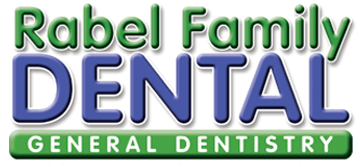Nutrition for Healthy Teeth and Gums

What you eat and even when you eat affects the health of both your teeth and your gums. While most people know that eating sweets increases the risk for cavities, not everyone is knowledgeable about other dietary choices that can affect dental health. Understand which foods play a role in dental health to better maintain healthy teeth and gums.
Get Plenty of Enamel-Building Nutrients
Foods high in phosphorus, including chicken, milk, eggs, fish, and other protein-rich foods, help rebuild your enamel. The same is true of foods that contain calcium, such as dairy products, leafy greens, and almonds. Vitamin A is also important for building enamel and is found in orange vegetables and fruits, tomatoes, leafy green vegetables, milk, and eggs.
Keep Gums Healthy With Vitamin C
Healthy gums help keep your teeth healthy. You need vitamin C both for making sure any wounds in your mouth heal quickly and for keeping the gums healthy. Bell peppers, citrus fruits, strawberries, broccoli, leafy green vegetables, tomatoes, and even winter squashes provide this essential nutrient.
Eat Acidic Foods Only During Meals
Choose High-Fiber Foods Often
Foods that contain plenty of fiber, including many fruits and vegetables, help keep the teeth clean. They increase the production of saliva in the mouth. Saliva helps dilute acid in foods and keeps food particles from sticking to the teeth and providing food for the bacteria that cause cavities. Crunchy high-fiber produce like carrots, celery, and apples even help clean off the teeth after meals.
Opt for the Right Dairy Products
While all dairy products provide essential calcium, yogurt also contains beneficial bacteria called probiotics that help keep your gums healthy. Just opt for the plain variety without added sugars. Cheese is also a good choice for dental health, as it tends to make the mouth less acidic by increasing saliva formation in the mouth. Dairy products, in general, appear to be good for decreasing gum disease risk.
Avoid Snacking
Avoid snacking when possible. When you do snack, opt for healthier options, such as nuts, fruits, vegetables, yogurt, or cheeses instead of sugary foods. Snacking doesn't cause the same release of saliva as eating a meal. Eat starchy and sugary foods only as part of meals to limit the risk of dental problems.
Drink Plenty of Water
Water helps perform some of the same functions as saliva, including diluting acidic foods and washing food particles away from the teeth. It's particularly important to drink water after snacks or meals if you won't be brushing your teeth right away.
Consider Tea Instead of Coffee
Coffee is an acidic beverage, so it's not that great for your teeth. However, some research points to potential cavity-limiting benefits from drinking black tea without any added milk, sugar, or lemon. Consider making the switch to tea instead of coffee.






